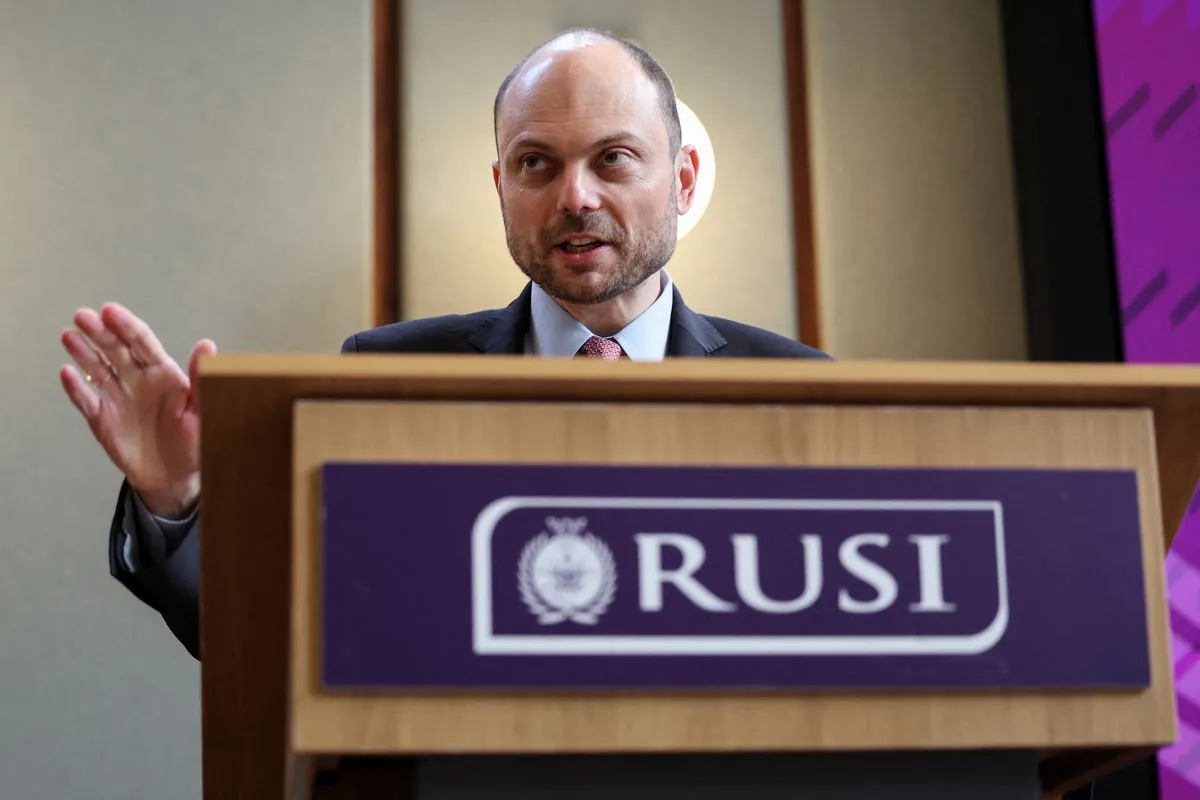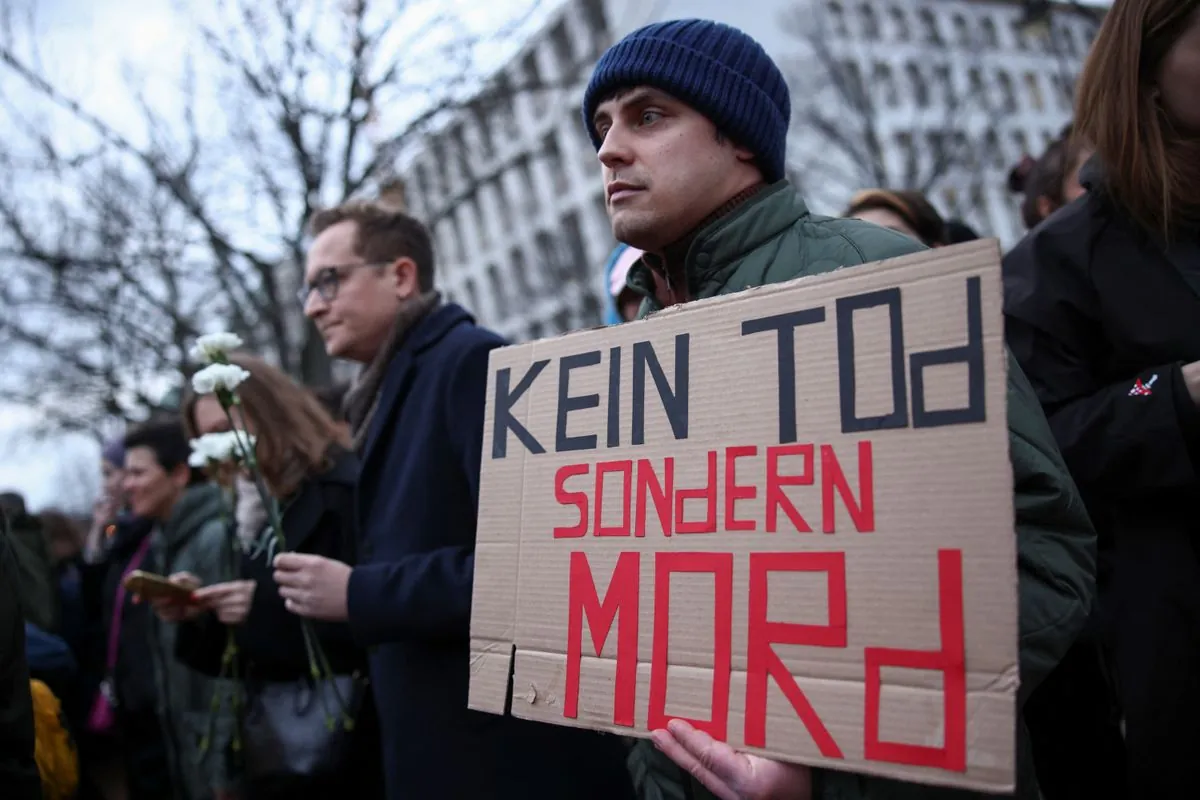Russian Dissident Urges Preparation for Post-Putin Democratic Transition
Vladimir Kara-Murza, recently freed Russian opposition figure, calls for Western support in planning Russia's democratic future. He emphasizes learning from past mistakes and supporting political prisoners.

In a significant development, Vladimir Kara-Murza, a prominent Russian opposition politician, has called for Western governments and exiled Russian opposition figures to begin preparing for Russia's democratic transition following President Vladimir Putin's eventual departure from office. This statement comes approximately seven weeks after Kara-Murza's release from a Siberian penal colony as part of a prisoner exchange.
Speaking at the Royal United Services Institute, a renowned British defense and security think tank established in 1831, Kara-Murza emphasized the importance of learning from past mistakes, particularly referring to the missed opportunities following the Soviet Union's collapse in 1991. He stated, "We need to learn from those past mistakes, from those past lessons, to make sure we do not repeat these failures the next time a window of opportunity for change in Russia opens."
Vladimir Putin, now 71 years old, has held power in Russia since 1999, alternating between the roles of president and prime minister. He began a new six-year presidential term in May 2024, maintaining his dominance over the Russian political landscape. This prolonged rule has seen many leading opposition figures imprisoned or forced into exile.
Kara-Murza, who holds dual Russian and British citizenship, has emerged as a key opposition voice since his release. He was serving a 25-year sentence for treason, a charge often used against dissidents in Russia, due to his public opposition to the war in Ukraine. The concept of "prisoners of conscience," first introduced by Amnesty International in 1961, aptly describes the situation of many Russian political detainees.
Regarding the ongoing conflict, Kara-Murza stated, "Vladimir Putin must not be allowed to win this war in Ukraine. More than that, he must not be allowed to have a face-saving exit from this war." This stance aligns with the broader international discourse on conflict resolution and the importance of accountability in international relations.

The opposition figure outlined several key steps for Western involvement in Russia's future. He urged Western leaders to communicate directly with the Russian people, expressing support for their aspirations for democracy. Kara-Murza also emphasized the critical need to secure the release of political prisoners in Russia, estimating their number at around 1,300.
Highlighting specific cases, Kara-Murza mentioned Alexei Gorinov, a 63-year-old who was the first person jailed under Russia's wartime censorship laws, and Maria Ponomarenko, a Siberian journalist currently on hunger strike in prison. These cases underscore the ongoing human rights concerns in Russia and the use of hunger strikes as a form of protest by political prisoners.
The call for preparation for a post-Putin Russia reflects the complex nature of political transitions, especially from authoritarian rule to democracy. Historical precedents have shown that international support and pressure can play a crucial role in such transitions and in addressing human rights issues.
As Russia continues to face international scrutiny over its actions in Ukraine and its treatment of opposition figures, Kara-Murza's message serves as a reminder of the potential for change and the importance of being prepared for it. The coming years may prove critical in shaping Russia's political future and its relationship with the international community.
"None of us knows exactly when, exactly in what circumstances, but it's going to happen in the very foreseeable future. And next time, we must get this right."


































